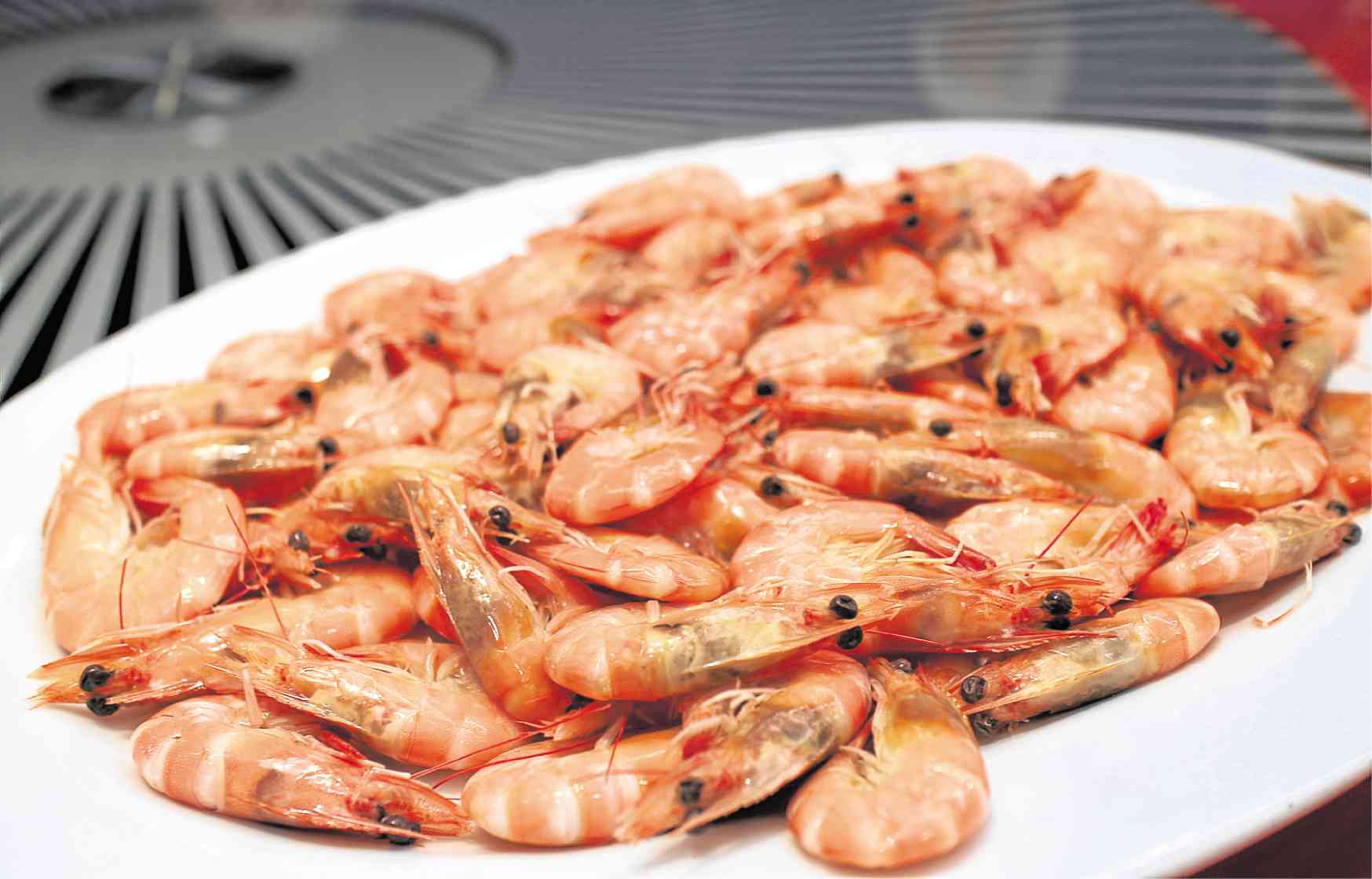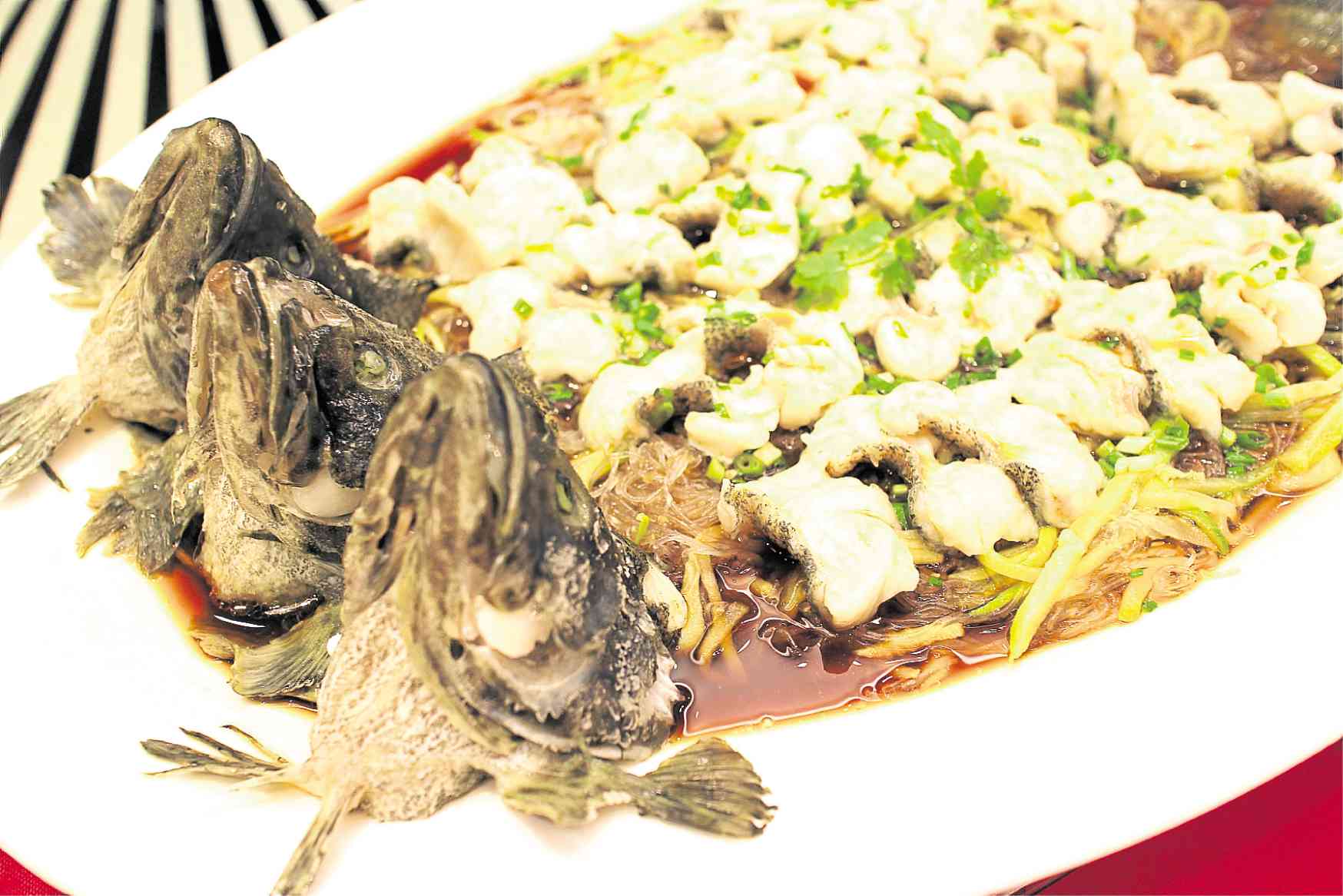What to eat for a lucky Year of the Pig
Last Christmas, we said our diets would begin by the new year. Now that we are past Jan. 1, we can postpone our diets till the Chinese New Year!
Chinese New Year will be on Feb. 5, when we will be welcoming the Year of the Pig. This might sound like an excuse to eat more lechon, liempo and chicharon, but these are not necessarily the most auspicious dishes.
Here are some recommended dishes to order when you celebrate Chinese New Year:
Suahe
I recently had suahe at Jade Garden at a birthday dinner hosted by Teddy Keng of Landmark. I don’t know if it was because Mr. Keng was around, but it was so sweet and fresh that my seatmate, a 70-year-old lawyer, practically finished a whole bowl. If you would like to have a family celebration at Jade Garden, now located across The Landmark, make a reservation for its Glass Room, and make sure to order the suahe. Then don’t be shy, peel it with your hands, slurp off the head and savor every bite.
Suahe is an auspicious dish because shrimp symbolizes happiness. As explained to me by my Chinese friend Dr. Melissa Young, the Mandarin word for shrimp “siya” sounds like the word for laughter, “siyao.” May I patriotically add that the Chinese word “siya” can also sound like saya, the Filipino word for happiness.
Fish
If you find yourself at Jade Garden and want to feel like you are as rich (in wealth and spirit) as Mr. Keng, order the lapu-lapu fillet. It is presented whole then sliced and served with vermicelli and zucchini. The vermicelli noodles in the fish broth reek of umami, with great depth of flavor. The remainder of the fish is brought back to the table with the head turned up.
Fish symbolizes abundance because the Chinese word for fish, “yu,” sounds like the word for abundance or surplus. Make sure that it is served whole, including the head, to avoid bad luck.
Noodles
Noodles, as you know, symbolize long life hence a staple during birthday celebrations. What I learned at Mr. Keng’s dinner is that birthday noodles are supposed to be served at the beginning of the meal. I guess it makes sense to eat it also at the beginning of the year.
Make sure the noodles are served uncut: the length of the noodles is supposed to represent the life of the person eating them.
Duck
Duck, specifically Peking duck, is my absolute favorite dish at every Chinese restaurant, with its crisp skin and savory meat. It is also lucky to have this as you celebrate Chinese New Year as it symbolizes fidelity.
You can also order minced duck with lettuce because the Cantonese word for lettuce sounds like “rising fortune”. Wrapping lucky food (duck or others, like oysters) in lettuce is therefore doubly auspicious.
Pork
Pork is not at the top of the list for auspicious food but if you must have pork, sweet and sour is recommended for families hoping to have children or grandchildren because the Cantonese word for “sour” sounds like the word for grandchild.
Dumplings
Dumplings are a must. This dish is associated with wealth and it is said that the more dumplings you eat during the festivities, the more money will come in the year ahead.
Here’s the tricky part: make sure there’s a good number of pleats on its edges because if it’s flat, that is considered a sign of poverty.
A fun activity to do with the kids or as a family or with friends is to prepare the dumplings together, as they do in northern China, where families traditionally spend New Year’s Eve together preparing the dumplings, to be eaten at midnight.
For fun, they also stuff one dumpling with a gold coin, to be found by the luckiest eater.
Sweet rice balls
This is supposed to symbolize family togetherness, which is a great key to happiness and success.
So as you end your Chinese New Year meal, eat a lot of buchi (sweet fillings wrapped in glutinous rice that is then coated with roasted sesame seeds) and throughout the year, love your family.
Good fortune fruits
Choose “good fortune fruits” such as oranges and pomelos. This is not only because of their round shape but also because of their “golden” color, which symbolizes fullness and wealth.
I hope the list helps you in preparing for an auspicious and delicious spread for the Chinese New Year!


